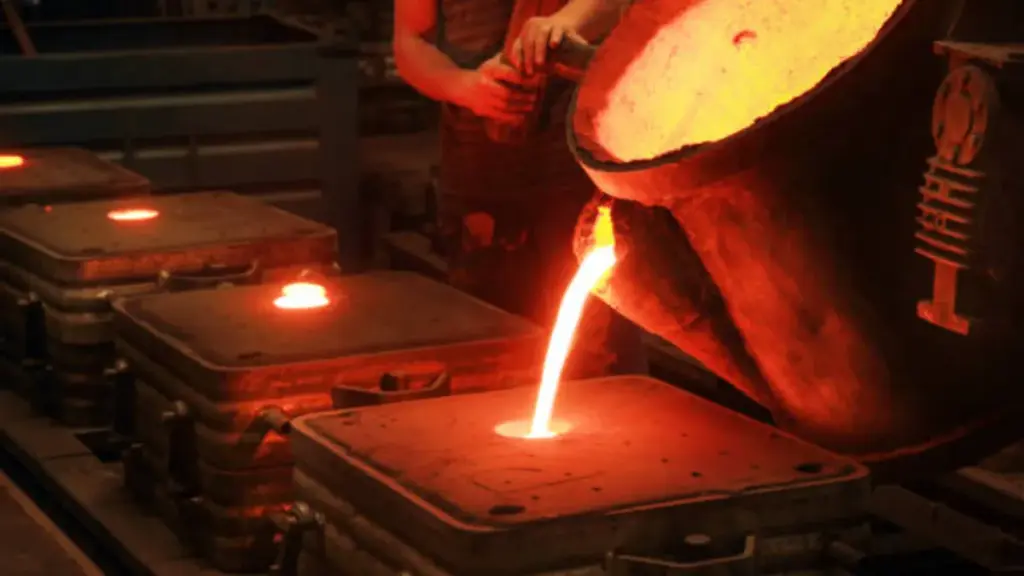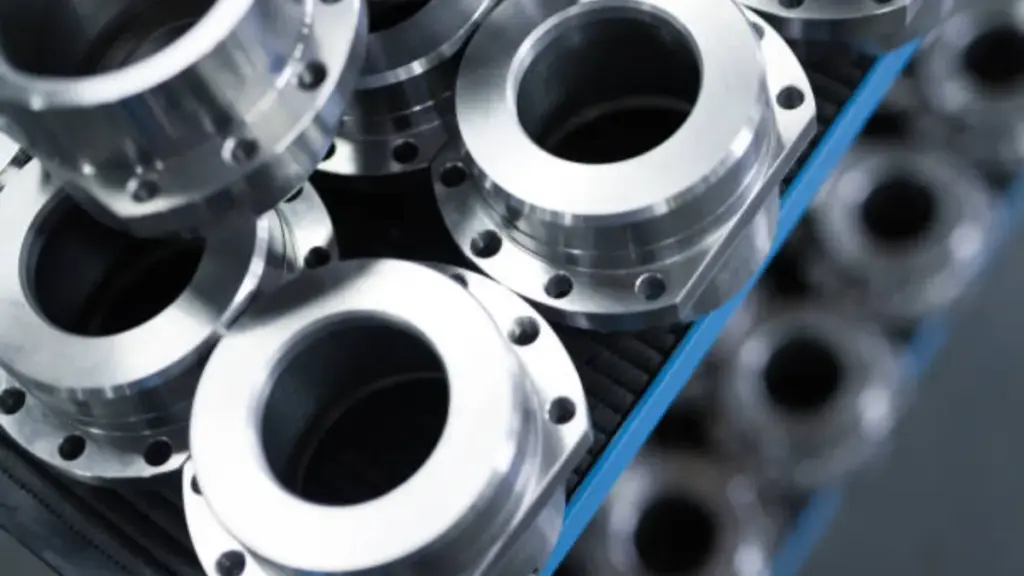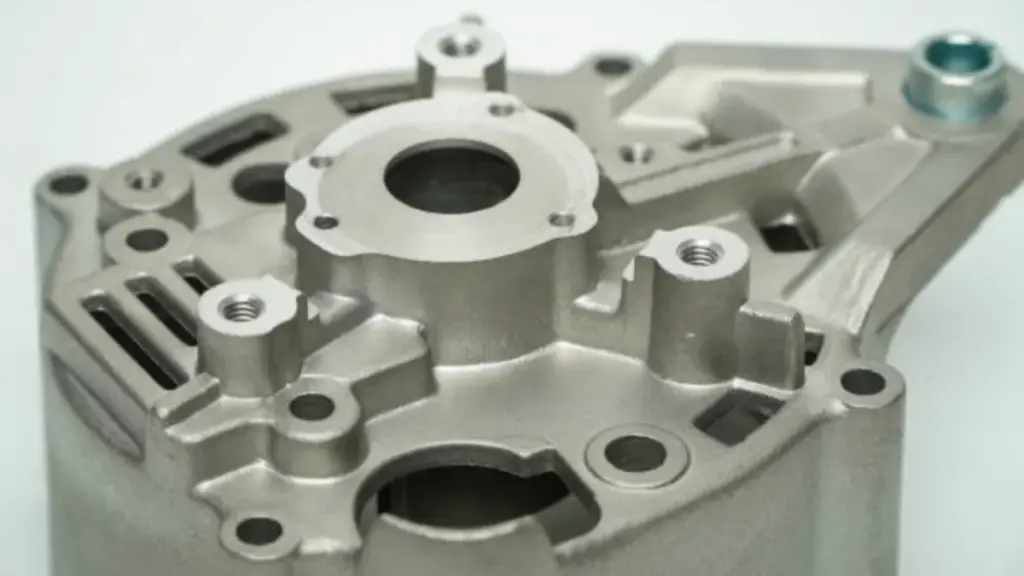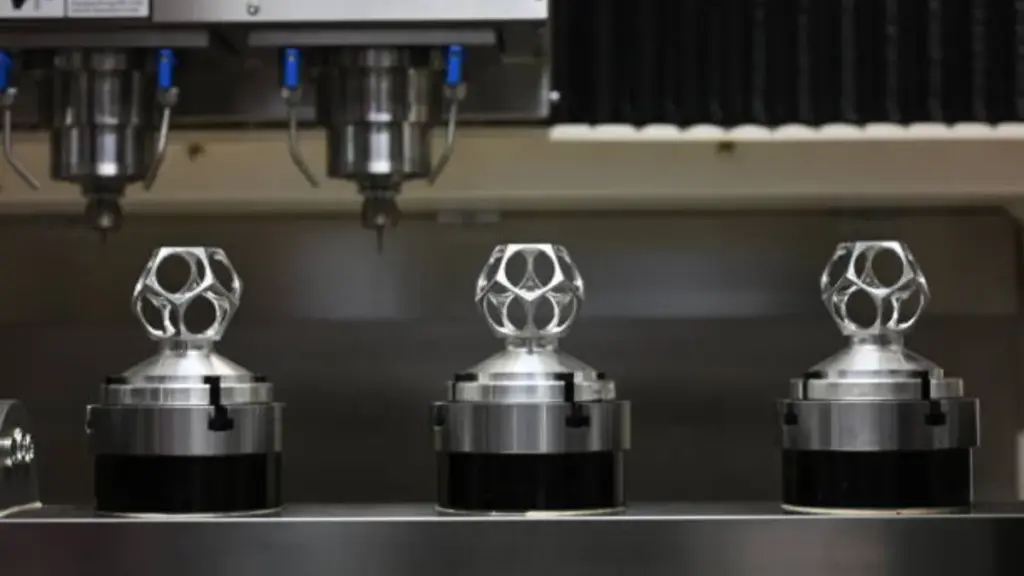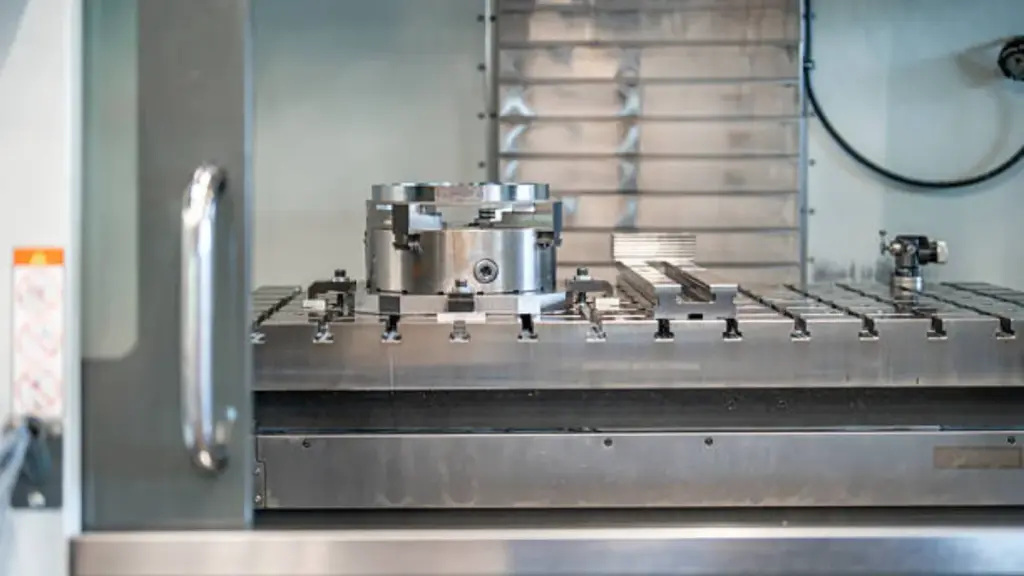Dans le domaine du contrôle numérique informatique (CNC) machines, Deux poids lourds se distinguent: le moulin CNC et le routeur CNC. Ces machines ont révolutionné les mondes du travail du bois et du travail des métaux, Offrir de la précision et de l'efficacité comme jamais auparavant. Mais ce qui distingue ces machines, Et quel est le bon choix pour vos projets spécifiques? Plongeons dans les principales différences entre les machines CNC Mill et CNC Router pour vous aider à prendre une décision éclairée.
Qu'est-ce qu'un moulin CNC?

Un moulin CNC, abréviation de l'accusation de commande de commande numérique informatique, est un outil puissant utilisé pour façonner des matériaux solides tels que le métal et le bois. Il est équipé d'outils de coupe rotatifs qui éliminent le matériau d'une pièce pour créer des conceptions complexes et des composants précis. Les moulins CNC sont connus pour leur polyvalence et leur capacité à produire des formes complexes avec une grande précision.
Pour les avantages et les inconvénients de CNC Mill
Avantages de CNC Mill
- Haute précision: Les moulins CNC offrent une précision et une précision inégalées dans les matériaux de coupe et de mise en forme, Les rendre idéaux pour des projets détaillés et complexes.
- Versatilité: CNC Mills peut fonctionner avec une large gamme de matériaux, y compris les métaux, plastiques, et composites, les rendre adaptés à des applications diverses.
- Efficacité: Avec des commandes automatisées et des paramètres programmables, Les moulins CNC peuvent produire des pièces rapidement et de manière cohérente, Réduire le temps de production et les coûts de main-d'œuvre.
Inconvénients de CNC Mill
- Coût: Les moulins CNC peuvent être coûteux à acheter et à entretenir, Surtout pour les modèles haut de gamme avec des fonctionnalités avancées.
- Complexité: Le fonctionnement d'un moulin CNC nécessite une connaissance des langages de programmation et des paramètres de la machine, qui peut être intimidant pour les débutants.
- Exigences de taille et d'espace: Les moulins CNC sont généralement plus grands et plus lourds que les routeurs CNC, nécessiter plus d'espace dans un atelier ou une installation de fabrication.
Qu'est-ce que le routeur CNC?

D'autre part, un Routeur CNC est une machine spécialisée conçue pour couper et façonner des matériaux comme le bois, plastique, et mousse. Contrairement aux moulins CNC, qui sont principalement utilisés pour le travail métallique, Les routeurs CNC sont adaptés à des projets de travail du bois qui nécessitent des conceptions complexes et des finitions lisses. Ces machines utilisent divers outils de coupe, comme les morceaux de routeur et les exercices, pour tailler des motifs et des formes détaillés avec précision.
Pour les avantages et les inconvénients du routeur CNC
PROFS DE CNC ROUTER
- Facilité d'utilisation: Les routeurs CNC sont conviviaux et intuitifs, les rendre accessibles aux opérateurs de tous les niveaux de compétence.
- Abordable: Par rapport aux moulins CNC, Les routeurs CNC sont généralement plus rentables, En faire une option pour les petites entreprises et les amateurs.
- Polyvalence dans le travail du bois: Les routeurs CNC excellent dans les applications de travail du bois, Offrir de la précision et de la vitesse dans la sculpture, gravure, et couper les matériaux en bois.
Inconvénients du routeur CNC
- Limité au travail du bois: Contrairement aux moulins CNC, Les routeurs CNC ne conviennent pas aux projets de travail des métaux, restreindre leur polyvalence dans les options matérielles.
- Précision inférieure à la boutique de métal: Alors que les routeurs CNC peuvent gérer les métaux, Ils peuvent ne pas offrir le même niveau de capacités de précision et de coupe que CNC Mills.
- Moins adapté à la production à haut volume: Les routeurs CNC sont mieux adaptés aux projets à petite échelle et aux conceptions personnalisées, plutôt que la production de masse.
Différences entre le routeur CNC et le moulin CNC
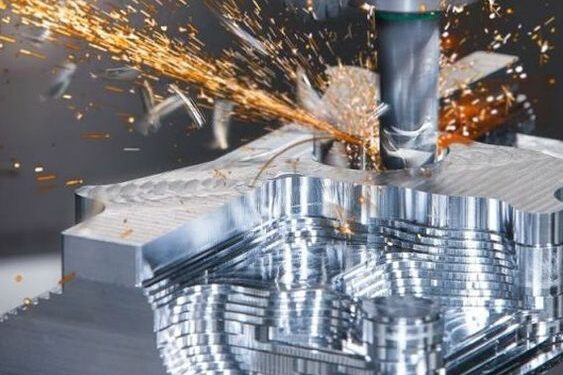
Taille et zone de travail de la machine
L'une des principales différences entre les routeurs CNC et CNC Mills réside dans leur taille et leur capacité de travail. Les routeurs CNC sont généralement plus petits et plus compacts, Les rendre adaptés aux petits ateliers et aux studios. En revanche, Les moulins CNC sont plus grands et plus lourds, nécessitant plus d'espace et une fondation robuste pour soutenir leurs opérations de coupe. La taille de la zone de travail varie également, avec des routeurs CNC offrant un lit de coupe plus petit par rapport aux usines CNC, qui peut accueillir des pièces plus grandes.
Capacité de coupe et précision
En ce qui concerne la capacité de coupe et la précision, CNC Mills surpasse les routeurs CNC dans des applications de travail métallique. Les moulins CNC sont équipés de broches à grande vitesse et d'outils de coupe robustes qui peuvent gérer facilement les matériaux difficiles, offrir des coupes précises et des conceptions complexes. En comparaison, Les routeurs CNC excellent dans des projets de travail du bois, offrant des détails fins et des finitions lisses sur les matériaux en bois mais peut manquer de précision requise pour les tâches de travail des métaux.
Outillage et vitesse de broche
Un autre facteur qui distingue les moulins CNC et les routeurs CNC est leurs capacités d'outillage et de vitesse de broche. Les moulins CNC sont équipés d'une variété d'outils de coupe, comme les moulins et les exercices, qui peut être échangé pour différentes opérations de coupe. Ces machines possèdent également des vitesses de broche élevées, permettant une élimination rapide des matériaux et une production efficace. D'autre part, Les routeurs CNC s'appuient sur des bits de routeur et des coupeurs pour façonner les matériaux en bois, avec des vitesses de broche inférieures adaptées aux applications de travail du bois.
Compatibilité des matériaux
En ce qui concerne la compatibilité des matériaux, Les moulins CNC sont mieux adaptés pour travailler avec les métaux et les matériaux durs qui nécessitent une coupe et une usinage précises. Routeurs CNC, d'autre part, Excel dans les applications de travail du bois, Offrir une polyvalence dans la coupe et la mise en forme du bois, plastique, et autres matériaux plus doux. Tandis que les moulins CNC peuvent gérer une gamme plus large de matériaux, Les routeurs CNC sont spécialisés pour les projets de travail du bois qui exigent des conceptions complexes et des détails fins.
Coût et entretien
En termes de coût et de maintenance, CNC Mills a tendance à être plus coûteux à acheter et à exploiter par rapport aux routeurs CNC. La technologie avancée et les fonctionnalités de hautes performances de CNC Mills ont un prix premium, En leur faisant un investissement pour les entreprises et les fabricants ayant des besoins d'usinage spécifiques. D'autre part, Les routeurs CNC sont plus favorables au budget et plus faciles à entretenir, En faisant une option accessible pour les opérations à petite échelle et les amateurs qui cherchent à explorer les projets de travail du bois.
Comparez CNC Milling vs. Routage en appliacation
Usinage CNC offre une large gamme de possibilités de fabrication, les moulins CNC étant idéaux pour l'usinage métallique de précision, tandis que les routeurs CNC excellent dans la sculpture et la coupe des matériaux plus doux comme le bois ou le plastique.
Applications dans les projets de travail du bois
Avantages de l'utilisation du moulin CNC pour le travail du bois
- Coupure de précision: Les moulins CNC offrent une haute précision et une précision dans la coupe des matériaux en bois, les rendre idéaux pour les dessins complexes et les formes complexes.
- Versatilité: Avec un moulin CNC, Les menuisiers peuvent explorer un large éventail d'opérations de coupe, du forage et du routage à la sculpture et à la gravure, Tout avec des détails exceptionnels.
- Efficacité: CNC Mills peut rationaliser le processus de production des projets de travail du bois, Réduire les coûts de main.
Avantages de l'utilisation du routeur CNC pour le travail du bois
- Configuration facile: Les routeurs CNC sont simples à installer et à fonctionner, Permettre aux menuisiers de commencer à couper et à façonner les matériaux rapidement sans une formation approfondie.
- Finitions lisses: Les routeurs CNC excellent dans la création de finitions lisses et de détails fins sur les matériaux en bois, Améliorer l'attrait esthétique des projets de travail du bois.
- Rentable: Pour les petites entreprises de menuiserie et les amateurs, Les routeurs CNC offrent une solution abordable pour personnaliser les conceptions et produire des boiseries de qualité sans se ruiner.
Applications dans des projets de travail des métaux
Avantages de l'utilisation de CNC Mill pour le travail métallique
- Usinage de précision: Les moulins CNC sont conçus pour l'usinage à haute précision des métaux, Offrir des détails complexes et une coupe précise pour les composants spécialisés.
- Coupure robuste: Les moulins CNC peuvent gérer des matériaux résistants comme l'acier et l'aluminium, Fournir des coupes précises et des formes complexes avec facilité.
- Polyvalence dans la ferronnerie: Avec la possibilité d'utiliser une variété d'outils et de techniques de coupe, CNC Mills peut s'attaquer à une large gamme de projets de travail des métaux, du prototypage aux courses de production.
Avantages de l'utilisation du routeur CNC pour le travail métallique
- Conceptions personnalisées: Les routeurs CNC peuvent créer des conceptions et des formes personnalisées dans les métaux, offrant une flexibilité dans les projets de travail des métaux qui nécessitent des composants uniques.
- Prototypage rapide: Pour les projets de travail métallique à petite échelle et les besoins rapides de prototypage, Les routeurs CNC fournissent une solution rapide et efficace pour tester les conceptions et itération sur les concepts.
- Rangeant pour les petits lots: Les routeurs CNC sont idéaux pour fabriquer de petits lots de pièces métalliques ou de composants, Fournir une solution rentable pour la fabrication et la production personnalisées.
Fraiseuse CNC et. Routeur CNC, Quel est le meilleur?
Cela dépend vraiment de l'application et des exigences spécifiques du projet.
Un moulin CNC est généralement utilisé pour la coupe et les opérations de forage sur des matériaux plus durs tels que le métal, tandis qu'un routeur CNC est mieux adapté pour couper et sculpter des matériaux plus doux comme le bois ou le plastique.
En général, Un moulin CNC est plus précis et a une rigidité plus élevée, ce qui est meilleur pour des opérations d'usinage plus précises et complexes. D'autre part, Un routeur CNC est généralement plus rapide et plus rentable pour couper les matériaux plus doux.
Choisir la bonne machine pour vos projets
Facteurs à considérer lors de la sélection d'un moulin CNC ou d'un routeur CNC
- Exigences matérielles: Considérez le type de matériel avec lequel vous travaillerez et les processus d'usinage impliqués dans vos projets pour déterminer si un moulin CNC ou un routeur CNC est mieux adapté.
- Complexité du projet: Analyser le niveau de détail et de précision requis pour que vos projets sélectionnent une machine qui peut fournir les résultats souhaités avec précision et cohérence.
- Contraintes budgétaires: Évaluez vos considérations budgétaires et coûts pour choisir une machine qui s'aligne sur vos ressources financières et vos plans d'investissement à long terme pour l'usinage de l'équipement.
Évaluation des exigences et du budget de votre projet
Lorsque vous choisissez entre un moulin CNC et un routeur CNC pour vos projets de travail du bois ou de travail des métaux, Il est essentiel d'évaluer attentivement les exigences de votre projet et les contraintes budgétaires. Considérez la compatibilité des matériaux, Capacités de coupe, précision, et facteurs de coût pour déterminer la bonne machine pour vos applications spécifiques. Que vous priorisez une haute précision dans le travail métallique ou la polyvalence dans le travail du bois, La sélection de la machine CNC appropriée améliorera votre productivité et votre efficacité dans la production de composants de qualité et de produits finis.
Conclusion
En conclusion, La confrontation entre les machines CNC Mill et CNC Router révèle les différences distinctes de taille, Capacités de coupe, compatibilité des matériaux, et des considérations de coûts qui influencent leur aptitude aux projets de travail du bois et de travail des métaux. Tandis que les moulins CNC excellent dans l'usinage de précision des métaux et des composants complexes, Les routeurs CNC offrent une polyvalence et une facilité d'utilisation dans des applications de travail du bois avec des finitions lisses et des conceptions complexes. En évaluant les exigences de votre projet, Préférences matérielles, et les contraintes budgétaires, Vous pouvez choisir la bonne machine qui s'aligne sur vos besoins et objectifs spécifiques pour obtenir des résultats de qualité dans vos efforts d'usinage.

